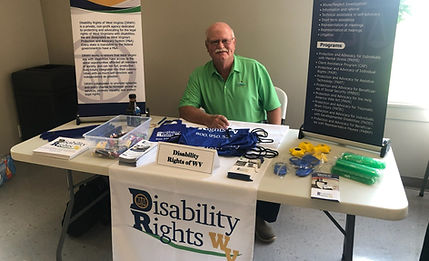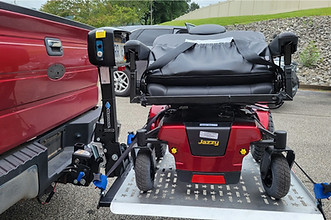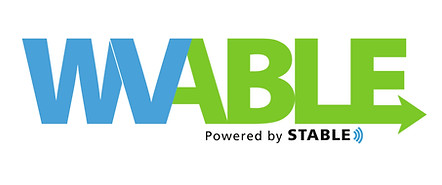ANNUAL REPORT

2023
Disability Rights of West Virginia
Another fiscal year comes to an end. All annual reports to our funders have been submitted. I would like to share some of our successful advocacy stories.
As always, I want to take the opportunity to thank the staff of Disability Rights of West Virginia. Their commitment to the individuals we serve is limitless. It takes every one of them to ensure our success.
Susan Given, Executive Director, MSW, LSW

Overview
Monitoring
In FY 2023, DRWV conducted 410 monitorings of 200 state and private facilities. These monitorings were conducted over thirteen major categories including: Assisted Living Facilities; Forensic and Behavioral Health Group Homes; Intermediate Care Facilities; Specialized Family Care Homes; State and Privately Operated Children’s Residential Facilities Psychiatric Hospitals, and Nursing Homes; WV Division of Corrections and Rehabilitation Jails and Prison; Intellectual/Development Disabilities Waiver Group Homes; a Legally Unlicensed Home; and a private residential facility.
Cases
In FY 2023, DRWV opened 1,282 federally funded Service Requests for 956 clients. The following table shows service requests broken down by federal funding source.
Special Education Related Service Requests by Federal Program:
Outreach and Training
DRWV staff set up our outreach display table at twenty-three events in FY 2023.
Staff also provided thirty-four outreach presentations and twelve trainings to various groups throughout the state.

Access to Services
A client with a mobility impairment requested assistance with getting access to a municipal building. DRWV completed a site survey and provided the city with information on Americans with Disabilities Act (ADA) entrance accessibility requirements. Due to advocacy provided by DRWV, the city added signage indicating where the accessible entrance is located. This information was also added to their website which made the Municipal Building more accessible to not only the client, but all residents with mobility impairments.

A client who uses a wheelchair made a complaint about a city’s public transportation system. She alleged issues related to inadequate lifts, inaccessible buses, discourteous transit officials, as well as other complaints. Since we had received similar complaints from other clients in the recent past, DRWV’s Legal Director sent a letter to all public transportation service providers in WV. Some of the providers followed up right away and seemed genuinely concerned about the allegations. Another complaint was received about the accessibility of the bus stop shelters in one city. The City Manager promptly responded and provided pictures of the current bus stop shelters, which were clearly made accessible before the complaint was made.
Assistive Technology

A client contacted DRWV for assistance with obtaining a vehicle lift for her motorized wheelchair. DRWV provided advocacy on the client's behalf with the WV Division of Rehabilitation Services (WVDRS) for her to be provided with a lift. The WVDRS provided funding to purchase the vehicle wheelchair lift which allows her improved access to her place of employment in order to retain her job.
Financial Well-Being
A client with a TBI asked for DRWV’s assistance in getting her Conservator to open an ABLE account. DRWV educated the Conservator on ABLE accounts and sent a letter to the Conservator and Legal Guardian outlining concerns with continued financial eligibility for Medicaid and home and community based services. Due to advocacy provided by DRWV, the client successfully had a WVABLE account opened.

Hospital Discharge Planning/
Least Restrictive Environment
A client with a serious mental illness requested assistance with getting discharged from a state psychiatric hospital. DRWV advocated for discharge to a less restrictive residential setting. As a result, the client was discharged from a state psychiatric hospital, where he had been for almost a year, to an assisted living facility. When asked if he was satisfied with his new placement, he said to the Advocate, “thank you for your part in getting me in here. It is a lot better than the hospital. The food is great, and I get to spend all the time I want on my computer."
Housing
A Legal Guardian of an individual with a development disability requested DRWV’s assistance regarding the landlord's new policy that forced the client to rescind his US Housing and Urban Development (HUD) voucher in order to continue to reside in his current apartment. DRWV reviewed applicable documents then filed a Cease and Desist related to forcing the client to decline HUD assistance as well as communicated with the landlord's legal counsel. The landlord, on advice of their legal counsel, agreed to drop the requirement to decline HUD funding for at least the next year. This impacted at least two individuals that DRWV is aware of.
Post-Secondary Education
A client had requested tuition sponsorship from WVDRS for graduate school and they wanted her to complete a psychological evaluation to determine if they would approve it. The client disagreed with the requirement to complete the evaluation because she previously completed evaluations for them. The client chose to complete the evaluation that she initially did not want to participate in, and she was denied graduate school sponsorship. She contacted DRWV for advocacy. DRWV communicated with the client and WVDRS and reviewed the client's WVDRS records to determine the reason for the denial. DRWV filed a Request for Review with WVDRS to request an exception to the college sponsorship policy that caused the denial of funding. WVDRS granted an exception to the college sponsorship policy, and they agreed to provide funding for her graduate school on a semester-by-semester basis. The client started graduate school and is working to meet her employment goals.
DRWV staff collaborated with WVDRS to conduct outreach and training to staff at Mason County Schools. DRWV staff also collaborated with WVDRS to conduct outreach to staff and management from a transitional living facility on the grounds of a state psychiatric hospital.

Social Security Overpayment Related to Employment
A client requested assistance with appealing a Social Security Administration (SSA) overpayment including the payment plan which had resulted in a barrier to employment. DRWV assisted the client in requesting a waiver of the SSA repayment. The Advocate communicated with the client and SSA, following up to request responses on the waiver request. As a result of DRWV’s advocacy, the client's request for an overpayment waiver was approved and he was reimbursed for all of the money he had paid back to SSA. He has resumed his request for services from the WV Division of Rehabilitation Services (WVDRS) and he has a part-time job.
Systems Work
DRWV represented a four-year-old girl with autism who is nonverbal. She went to a national chain movie theater to see Disney’s A Little Mermaid. During the movie she attempted to sing. She was evicted from the movie. DRWV investigated the matter and provided notice of suit to the movie theater's corporate office. In response, DRWV and the theater's corporate office are discussing a settlement that will include the theater showing children-related movies in a low sensory environment at its two movie theaters in WV. This will impact children with many types of disabilities.
During the 2023 legislative year, DRWV was asked to provide technical assistance to various legislators, legislative staff, and legislative committees, including the Legislative Oversight Commission on Health and Human Resources Accountability, the House of Delegates Health Committee, the Senate Judiciary Committee, and the Senate Health Committee.
DRWV has continued our partnership with the National Arc, the Arc of Three Rivers, the Judge David L Bazelon Center for Mental Health Law, Mountain State Justice, and Latham and Watkins, LLP to examine the placement of students with disability-related behaviors. This lawsuit continues.
DRWV along with A Better Childhood (a national nonprofit) and a local WV law firm filed a federal class action lawsuit against the WVDHHR and several state officials at the end of FY 2019. The suit alleges that the WV Foster Care system is failing to protect children and failing to provide needed services. The US District Court granted class certification. Extensive discovery is being conducted. Trial is scheduled to begin in 2024.

Voting Rights
DRWV assisted eleven clients in registering to vote or updating their voter registration, assisted four clients with requesting and/or understanding absentee ballots, and educated two other clients about their voting rights.

In FY 2023, DRWV staff conducted accessibility studies of the external access to one hundred nine polling sites in six counties in WV. Ninety-nine of the sites were identified to be in violation of the Americans with Disabilities Act (ADA) in some way. The most common ADA violations were a lack of van accessible parking spaces and/or adjoining access aisles, parking signage displayed at the improper height or missing altogether, and unstable surfaces on access routes. DRWV has or will follow up on each violation per our written process.